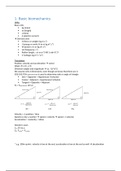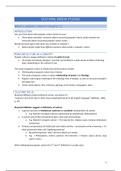Samenvatting
BBS1004 Brain, behavior and movement summary of all lectures
- Instelling
- Maastricht University (UM)
A summary of the lectures in course BBS1004 - Brain, behavior and movement of the bachelor biomedical sciences at maastricht university.
[Meer zien]





